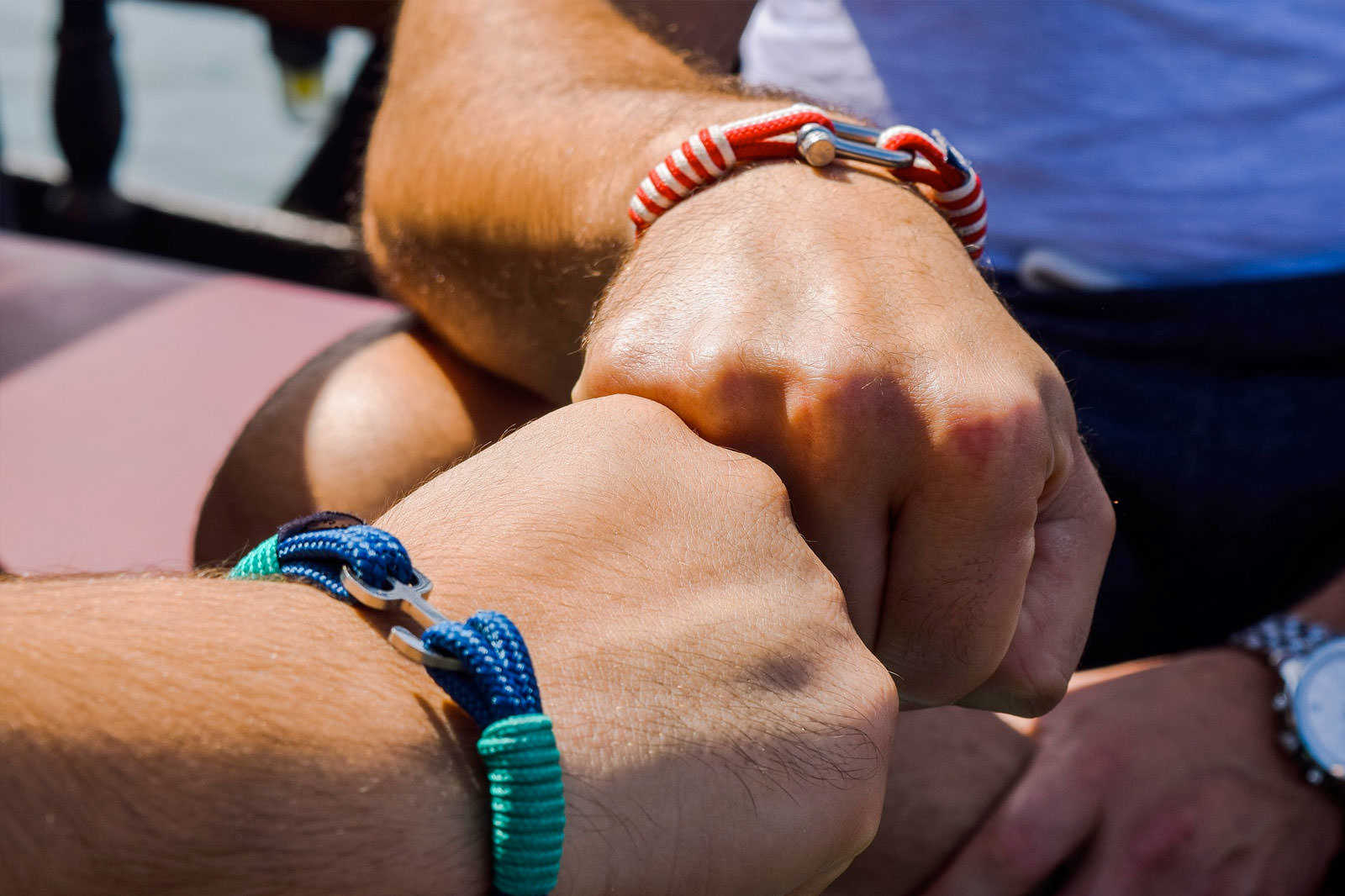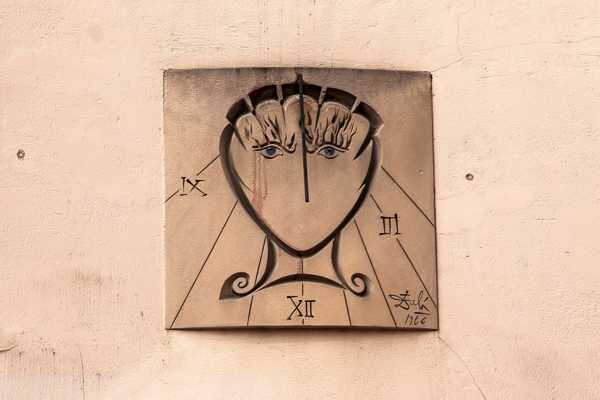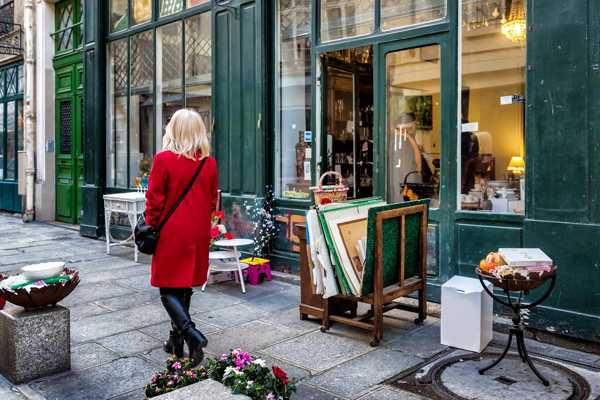Common scams in Paris can very easily ruin a trip to this beautiful city. Like in any popular place, there are a number of unscrupulous individuals hoping to make some easy money. It’s entirely possible to be approached by most and maybe even all of the scammers on our list with a single day.
Naturally, not everyone in Paris is trying to fleece you, and a bit of preparation will help to ensure that your day is a memorable one for the right reasons. Scams only succeed when you don’t know what’s coming, so we’ve made these mistakes for you, leaving you free to ignore the approaches and just enjoy your time in the City of Light.
- 1
The Gold Ring

You’re walking along the banks of the Seine, passing by an old lady, and suddenly hear the tinkle of something metal hitting the ground. The lady stops you, picks up a gold ring and says that you must have dropped it. You obviously didn’t, and you say so. The lady will then insist that it is a very nice ring and you should take it, either for good luck or to give to your significant other, but will then beg for money in return.
How to Avoid: If it isn’t your ring (which it isn’t), don’t take it. Your significant other wouldn’t appreciate the cheap polished brass band, either. Just walk away and ignore them.
- 2
The Fake Charity Collector

The fake charity collector is astonishingly common underneath the Eiffel Tower. You will often find 10 or more scam artists working the crowd at the same time. The approach is very simple – someone will wave a clipboard in your face, often featuring photocopied logos from legitimate charities. The scammers seem to mostly favour charities for the deaf and mute, presumably so they can pretend not to be able to reply if you question their authenticity. Suffice it to say, the money they gather will never go to a good cause.
How to Avoid: Most charities don’t collect cash on the street, but will just ask for your contact details so they can send you more information. If someone’s demanding money on the spot, walk away.
- 3
The Friendship Bracelet

Friendship bracelets can be a lovely gesture, but watch out. Widely reported around Sacre Coeur in Montmartre, this scam involves a friendly guy approaching you and prompting you to stick out your hand, perhaps with the offer of a handshake. As soon as you do, you’ll find a colourful thread tied around your finger. This, over the course of a few minutes, will be braided into a friendship bracelet. Unfortunately, you are now hooked like a fish, making it very easy for the scam artist to demand payment. With friends like that, who needs enemies?
How to Avoid: Keep your hands to yourself around popular tourist attractions, don’t shake any random stranger’s hand and, if you do get hooked, remove the loop of thread as soon as possible.
- 4
The Rose

Paris is renowned for its romantic atmosphere, and the rose is a symbol of romance. If someone walks up to you and presents you with a fresh rose, it’s surely just a random act of kindness and love, right? Wrong – they only love you for your money! If you accept the floral gift, the scammer will immediately demand payment. Even if you immediately return the flower, they’ll sometimes follow you with their demands.
How to Avoid: Don’t accept gifts from strangers – it’s as true in adulthood as it is in childhood.
- 5
The Metro Helper

The metro helper is a breed of scammer that's far from unique to Paris. Virtually any city in the world which has a metro with a complicated ticket system will have some of these 'helpful' souls waiting to take advantage. While trying to decipher the maps and machines, someone in an official-looking uniform will approach you and offer to get your tickets for you. They will charge you for an adult ticket, but will only buy you a child’s ticket. They may even give you an expired one. If you’re caught by an actual metro official, you’ll be fined.
How to Avoid: Always buy your own train tickets to ensure you’re getting what you want. If you’re having difficulty, ask someone to show you how to operate the machines or go to the ticket counter.
- 6
The Beggar

The beggar is not always a scammer. This is a tricky one to identify as a scam because it could be that the individual approaching you is genuinely in need of assistance – it’s impossible to tell. Beggars are commonly encountered around major tourist attractions and railway stations. Variations on the theme include a woman approaching you at a café carrying a crying baby (some have seen the baby being violently encouraged to cry, to get the full effect), others come bearing a scruffy note detailing their harrowing circumstances and tales of woe.
How to Avoid: If you want to make sure your money is going to those who actually need it, donate it to a registered charity.
- 7
The Pickpocket

The pickpocket often operates in crowded areas. While many scammers try to extract money from your wallet by taking advantage of your generosity, others bypass this step and just extract your wallet. Pickpocketing in Paris can take many forms, with the most common being clumsy joggers “accidentally” knocking you off your feet or lost tourists asking for your help while inspecting a map. In both cases, they’re just creating a distraction so that your attention isn’t on your wallet or purse, which they or their accomplice is stealing. Pickpockets operate throughout Paris, but are especially notorious in and around The Louvre, where they let the Mona Lisa do the distracting.
How to Avoid: Carry few valuables and as little cash as you can when visiting famous sights, ideally keeping them in an inside or zip-up pocket. Generally, be very mindful of your belongings in crowded places.
- 8
The Street Vendor

The street vendor might display some tempting items. It’s nice to buy a little memento of your time in Paris to remind you of the happy times, but be careful of who you buy it from. Many of the wandering touts around the major attractions are known to be extremely aggressive in their sales techniques. They may start off friendly, offering to let you inspect and try out their wares. However, as soon as you touch something or show even the faintest interest, they’ll demand payment. Some have been known to constantly pester the same person, utterly ruining their experience of an attraction.
How to Avoid: Do not engage with them at all. Ignore them as soon as you see them and buy your souvenirs from a shop.
- 9
The Magician

The magician can be charismatic. You’re walking down the street and a random guy will say “You think too much”. This is almost certainly true – most people do – but this insight is just the opening line of a scam. What will follow is a claim of being able to produce some deeper insight into your life, despite not even knowing you. They may offer to guess your mother’s first name or list your personality traits. Whatever the case, the magic trick they perform will be profoundly unimpressive and expensive.
How to Avoid: Just say "no" and walk away.
- 10
The Shell Game

The shell game is one of the oldest tricks in the book, and is arguably more magic trick than scam. There are three upturned cups (the “shells”) on a table, one of which has a ball or dried pea under it. The scammer will show you the ball under one of the cups, then move the cups around very quickly. Inevitably, whichever cup you put your money on the ball being under, it will have “magically” disappeared. It’s an unwinnable game, purely designed to take your cash.
How to Avoid: Give them a wide berth. Even if you’re just standing there to watch others fall for it, you’re making yourself a target for pickpockets.
Ảnh của Steven Lek (CC BY-SA 4.0) đã điều chỉnh



















